Abstract
Detached pistils of Lilium longiflorum were labeled with d-glucose-U-14C 24 hours after anthesis and then sampled for the next 6 days to determine the appearance of label into exudate from the stylar canal and the stigmatic surface of the pistil. Results were obtained with unpollinated cv. Ace pistils and pollinated cv. Ace pistils, selfed or crossed (cv. Croft pollen). Limited data were also obtained on cv. Croft pistils, selfed or crossed (cv. Ace pollen).
Exudate appeared in the canal and on the stigmatic surface soon after anthesis. In unpollinated pistils it continued to accumulate for about 5 days in the canal and for the full term of the experiment, 7 days, on the stigmatic surface. Canal exudate eventually mixed with stigmatic exudate in unpollinated pistils. Pollination interrupted the flow of exudate, and a portion of the pistil secretion product was diverted toward the synthetic requirements of the developing pollen tubes. Two days after pollination, the specific radioactivity of pollen tube cytoplasm had reached a level comparable to canal exudate. Twenty-four hours later, the specific radioactivity of pollen tube wall substance was about 80% of the value found in canal exudate. Similar patterns of 14C incorporation and similar carbohydrate contents were obtained from self- and cross-pollinated pistils, although the former contained pollen tubes of less than one-half the length of the latter.
Full text
PDF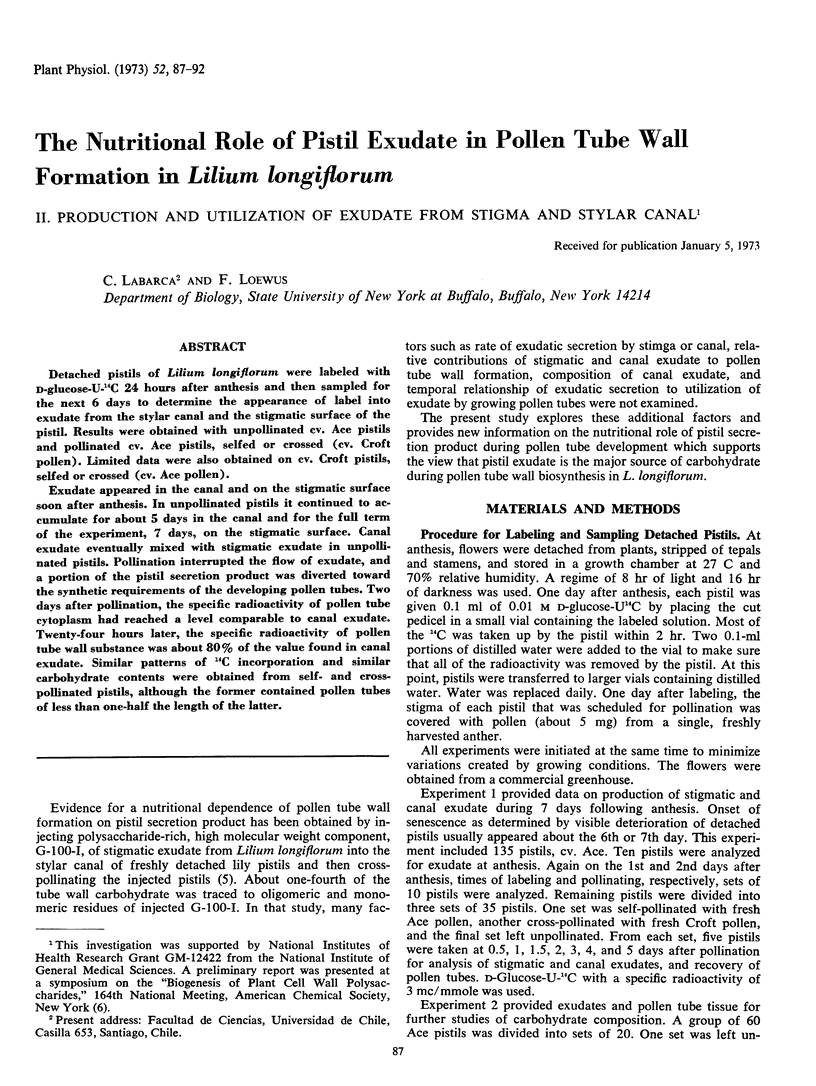
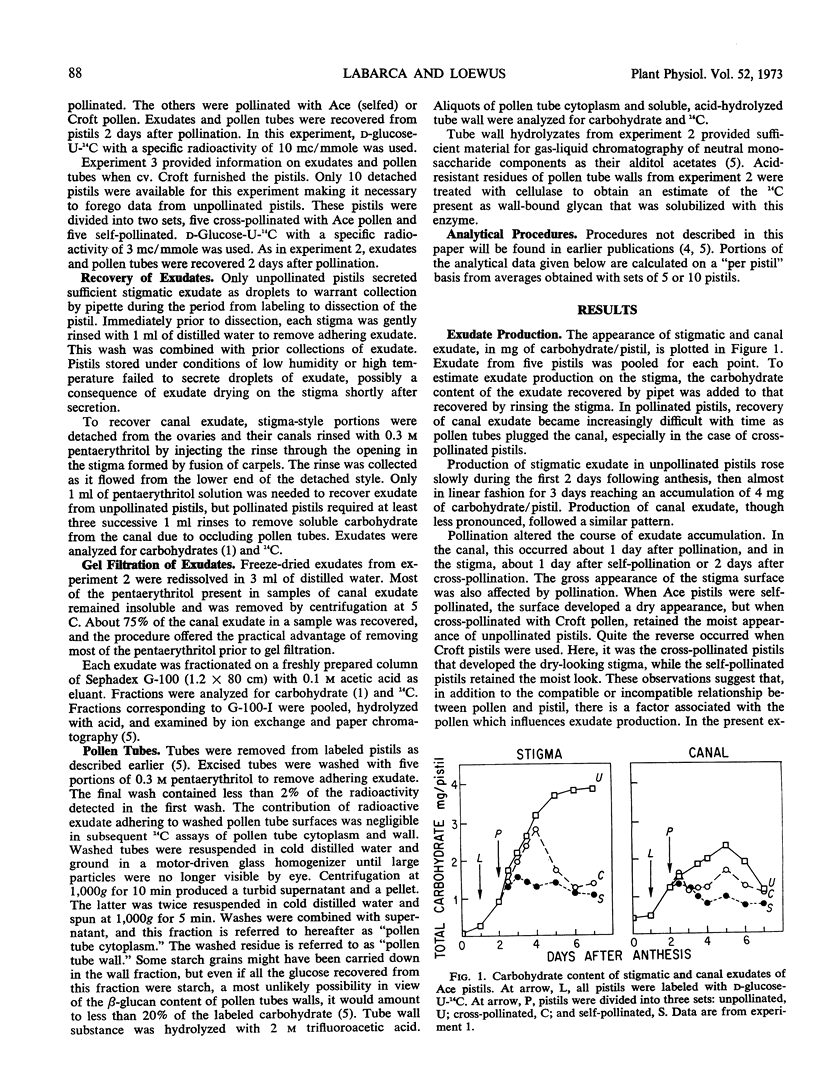
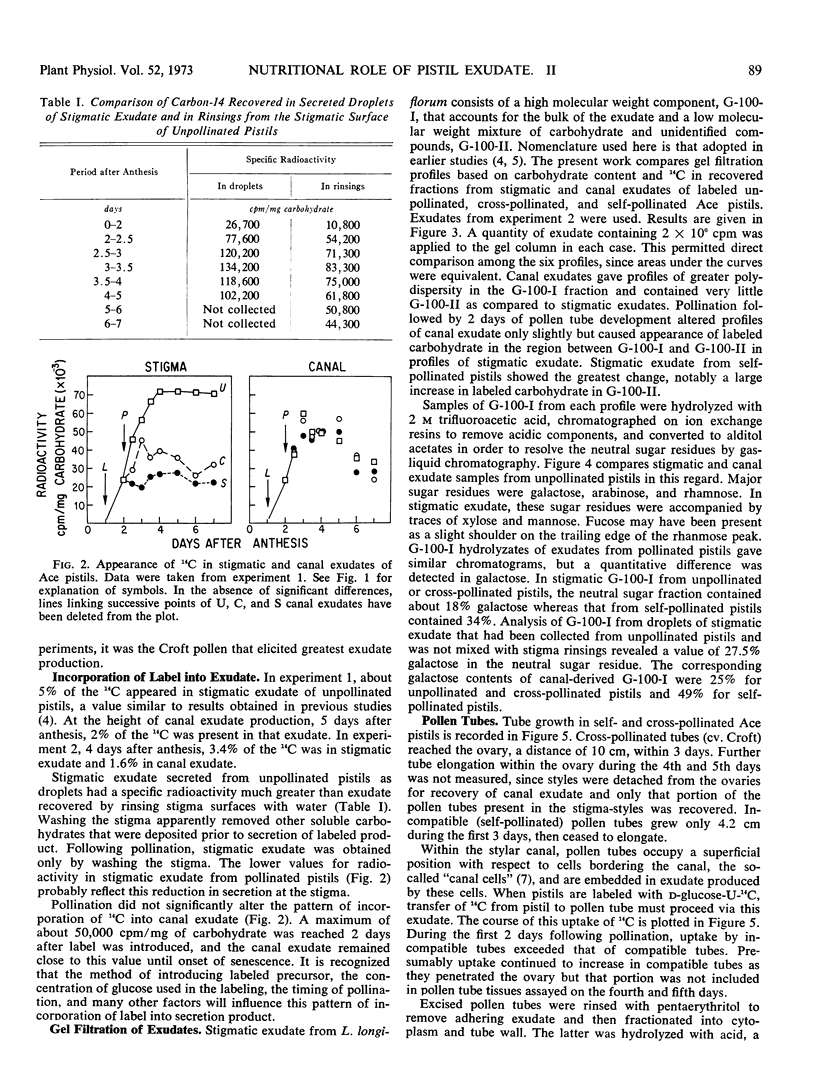
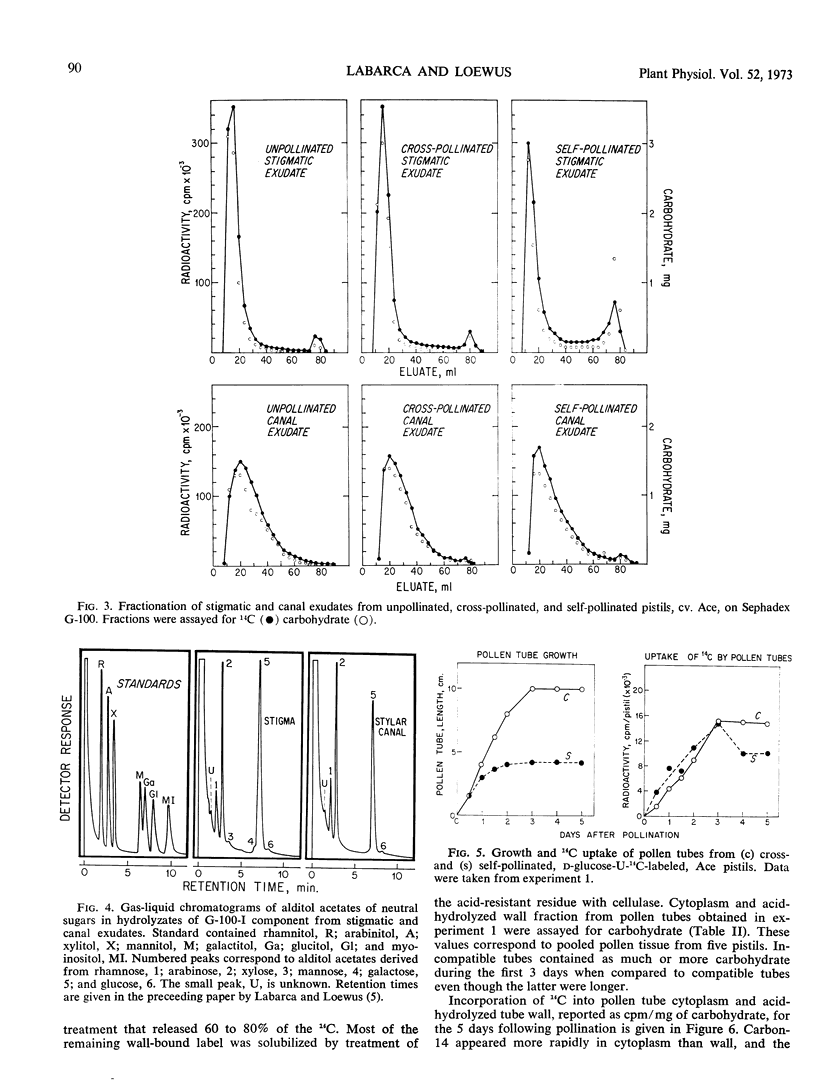
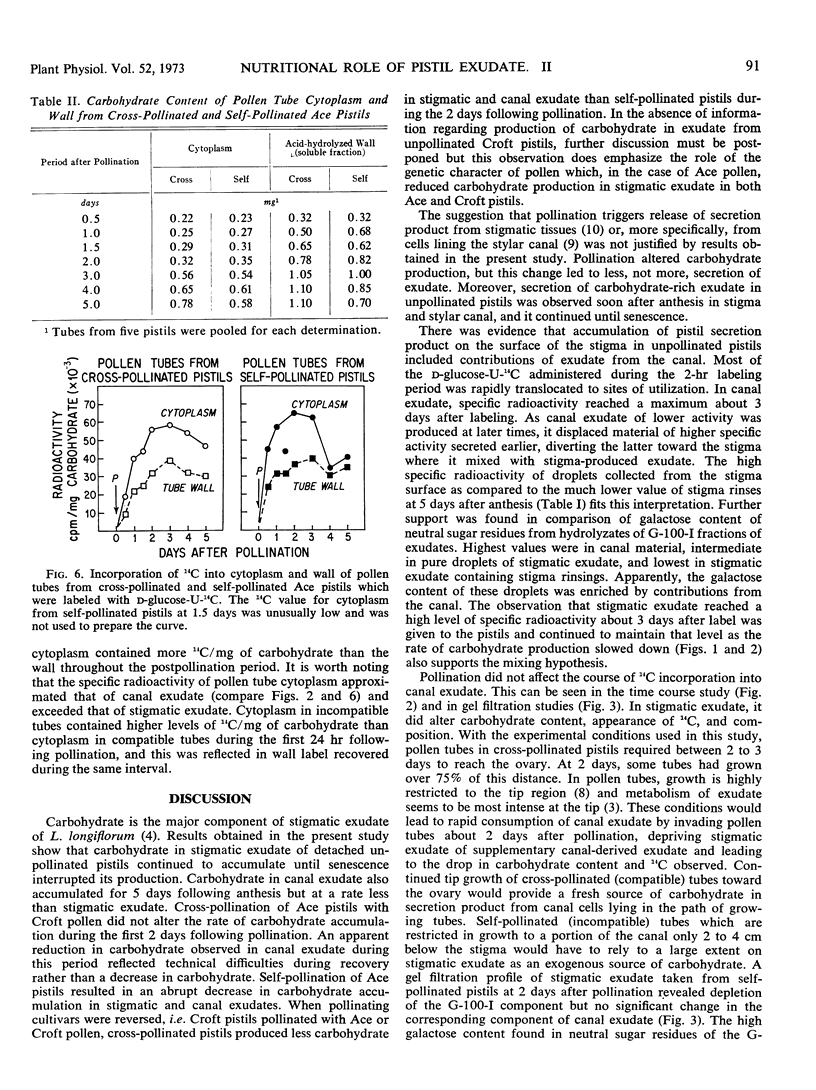
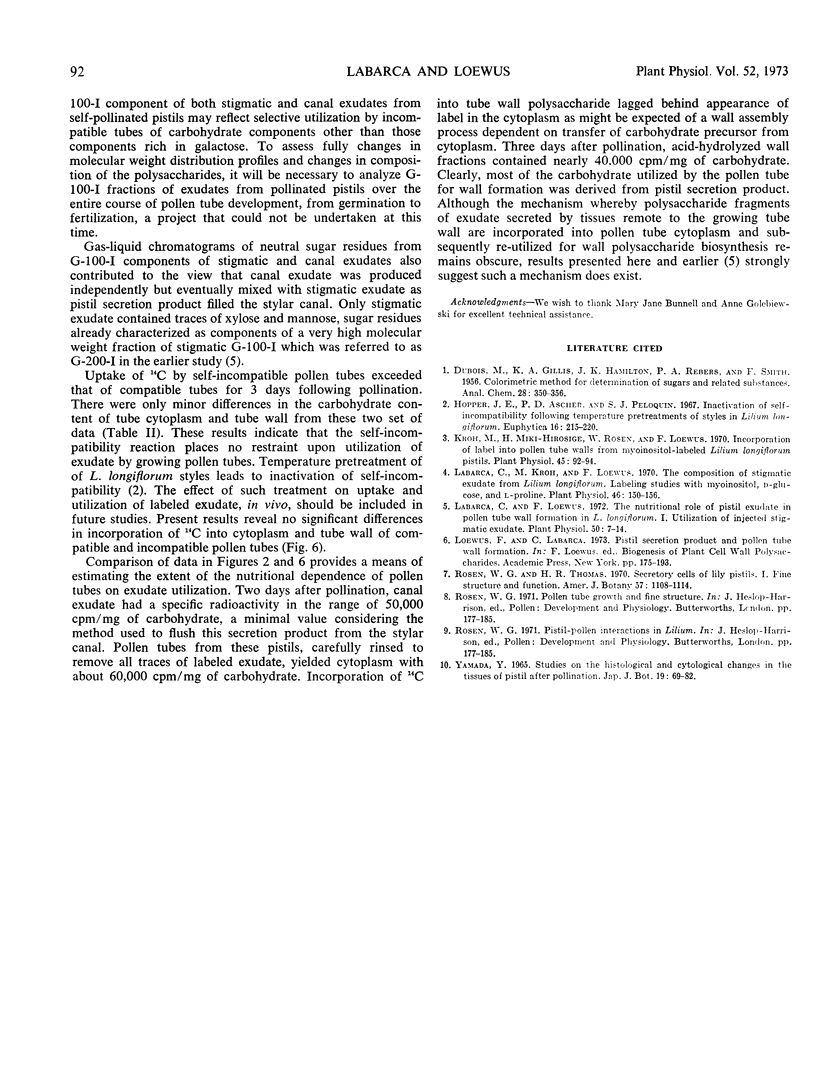
Selected References
These references are in PubMed. This may not be the complete list of references from this article.
- Hubbert W. T., Rosen M. N. Pasteurella multocida Infections: I. Pasteurella Multocida Infection Due to Animal Bite. Am J Public Health Nations Health. 1970 Jun;60(6):1103–1108. doi: 10.2105/ajph.60.6.1103. [DOI] [PMC free article] [PubMed] [Google Scholar]
- Kroh M., Miki-Hirosige H., Rosen W., Loewus F. Incorporation of label into pollen tube walls from myoinositol-labeled Lilium longiflorum pistils. Plant Physiol. 1970 Jan;45(1):92–94. doi: 10.1104/pp.45.1.92. [DOI] [PMC free article] [PubMed] [Google Scholar]
- Labarca C., Kroh M., Loewus F. The Composition of Stigmatic Exudate from Lilium longiflorum: Labeling Studies with Myo-inositol, d-Glucose, and l-Proline. Plant Physiol. 1970 Jul;46(1):150–156. doi: 10.1104/pp.46.1.150. [DOI] [PMC free article] [PubMed] [Google Scholar]
- Labarca C., Loewus F. The Nutritional Role of Pistil Exudate in Pollen Tube Wall Formation in Lilium longiflorum: I. Utilization of Injected Stigmatic Exudate. Plant Physiol. 1972 Jul;50(1):7–14. doi: 10.1104/pp.50.1.7. [DOI] [PMC free article] [PubMed] [Google Scholar]


